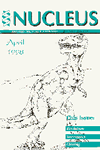While there is little doubt that it could be done, many feel that an 18 month timescale is overly optimistic. It took 277 attempts to produce Dolly the sheep.
President Clinton banned federal funding for human cloning last year and proposed a law forcing a five year moratorium on research in the field. However, the legislation has yet to be enacted and has not even cleared the initial stages of Congress review.[1]
A teacher of reproductive law at Chicago-Kent School of Law has said that laws currently being drafted in the US to prevent human cloning are full of legal loopholes. Ms Lori Andrews warned that clones from donated eggs are not true clones because of the presence of mitochondrial DNA. In addition, such laws may not prevent the creation of headless human organ donors since it could be argued that such beings are not fully human.
In February this year a bill to ban human cloning was shelved in the Senate due to differences over what constitutes a human life entitled to legal protection.[2]
Meanwhile, 19 members of the Council of Europe have signed an agreement in Paris to prohibit 'any intervention seeking to create a human being genetically identical to any other human being, whether living or dead, by whatever means'.[3]
In the UK the Human Genetics Advisory Commission (HGAC) and the Human Fertilisation and Embryology Authority (HFEA) have issued a consultation paper inviting responses on therapeutic cloning to create human tissue or organs to prevent disease. The CMF Submission can be viewed on this site.
Sir Colin Campbell and Ruth Deech, chairpersons of the HGAC and HFEA respectively, are drawing a clear distinction between reproductive cloning (creating genetically identical 'human beings') and therapeutic cloning (whereby 'embryos' are created for therapy or research).[4]
Under the 1990 Human Fertilisation and Embryology Act it is legal in Britain to experiment on and destroy embryos up to 14 days old. Cloning by nuclear replacement could reprogramme embryonic cells to produce tissues or organs genetically identical to those of existing human beings, thus avoiding rejection after transplantation. Other potential areas of benefit include research into ageing, cancer, infertility, congenital disease and miscarriage.[5]
As Christians we believe that all human beings are created in the image of God and, regardless of age or disability, are of infinite worth in his sight. Human diversity is part of his sovereign design. While he has made us stewards of his creation, thus validating scientific enquiry and application, this must always be exercised for the ultimate good of individual human beings.
The end never justifies the means, especially when that means involves destroying existing human life, even embryonic life. We are also obliged to ensure, that as far as possible, every human being has the benefit of the protection, nurture and discipline of a family upbringing.
These principles lead us to have serious misgivings about human cloning. Not only does it treat human beings as consumer items cutting across the diversity that the Creator has designed, but the research that is necessary for much of its development means that human embryos are treated as a means to an end. While the field of genetics opens many new and exciting therapeutic possibilities, we need to ensure that we do not usurp God's role in creation in pursuing them.
































